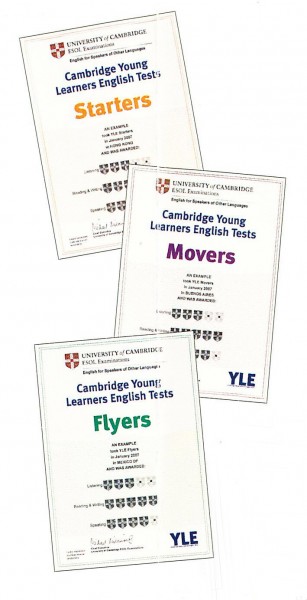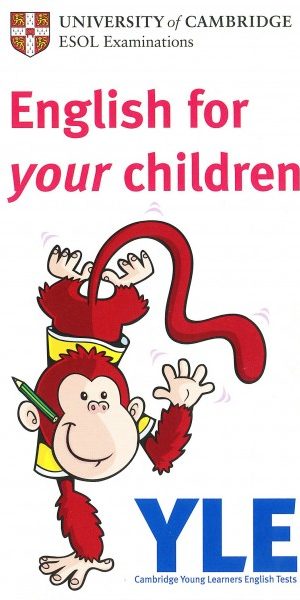ENGLISH FOR PUPILS
Our courses / English courses / English for Pupils

ENGLISH FOR PUPILS
English for basic and High school students :
Learning English at the English Cultural Center is more than just exams and grades. It’s about having the confidence to communicate and access a lifetime of enriching experiences and opportunities.
Our qualifications are designed to give pupils regular milestones to keep them motivated.
We run a comprehensive programme for students throughout the school year and
during the holiday periods.
Our English lessons for kids and teens promote the development of self-confidence, give your children a global perspective and as well as provide them with future career opportunities.
The best age to learn a new language is during childhood. With fewer inhibitions, kids can easily absorb the nuances of a foreign language and they’re often able to speak without an accent.
Your path to learning English, step by step
English for schools are in-depth exams that make learning English enjoyable,
effective and rewarding.
Our qualifications are based on research into effective teaching and learning. They motivate people of all ages and abilities to learn English and develop practical skills for the real world.
Each exam focuses on a level of the Common European Framework of Reference (CEFR), helping learners to improve their speaking, writing, reading and listening skills step by step.
Whatever your goals or ambitions, Cambridge English Qualifications are a mark of excellence, accepted and trusted by thousands of organisations worldwide.

- A1
- A2
- B1
- B2
- C1
- C2
Can understand and use familiar everyday expressions and very basic phrases aimed at the satisfaction of needs of a concrete type.
Can introduce him/herself and others and can ask and answer questions about personal details such as where he/she lives, people he/she knows and things he/she has.
Can interactin a simpleway provided the other person talksslowly and clearly and is prepared to help.
Can understand sentences and frequently used expressionsrelated to areas of most immediate relevance (e.g. very basic personal and family information, shopping, local geography, employment).
Can communicate in simple and routine tasks requiring a simple and direct exchange of information on familiar and routine matters.
Can describe in simple terms aspects of his/her background, immediate environment and matters in areas of immediate need.
Can understand the main points of clear standard input on familiar matters regularly encountered in work, school, leisure, etc.
Can dealwith mostsituationslikely to arisewhilsttravelling in an areawhere the language isspoken.
Can produce simple connected text on topics, which are familiar, or of personal interest.
Can describe experiences and events, dreams, hopes & ambitions and briefly give reasons and explanations for opinions and plans.
Can understand the main ideas of complex text on both concrete and abstract topics, including technical discussions in his/her field of specialisation.
Can interact with a degree of fluency and spontaneity that makes regular interaction with native speakers quite possible without strain for either party.
Can produce clear, detailed text on a wide range of subjects and explain a viewpoint on a topical issue giving the advantages and disadvantages of various options.
Can understand a wide range of demanding, longer texts, and recognise implicit meaning.
Can express him/herself fluently and spontaneously without much obvious searching for expressions.
Can use language flexibly and effectively for social, academic and professional purposes.
Can produce clear, well-structured, detailed text on complex subjects, showing controlled use of organisational patterns, connectors and cohesive devices.
Can understand with ease virtually everything heard or read.
Can summarise information from different spoken and written sources, reconstructing arguments and accounts in a coherent presentation.
Can express him/herself spontaneously, very fluently and precisely, differentiating finer shades of meaning even in more complex situations.
Test Your Level
ESOL B1 Achiever
Read moreBeing confident in English gives your child a good start to the education, skills and career opportunities that lie ahead.
By encouraging them to communicate in English, we help them to develop their speaking, listening, reading and writing skills in a natural and enjoyable way.
Our English courses are designed to reflect the way children learn at every stage of their development.
Our teachers are experienced, qualified professionals who benefit from ongoing professional development programs.


The best way for children to learn English and build confidence
This English language course for kids aged 6 to 12 years old. Designed to spark your child’s imagination, our engaging lessons are led by our highly qualified and experience teachers. Together with our topical materials and fun learning environment, we help young learners become confident, happy and skilled English speakers.
✅ Course information
1, 2 or 3 sessions a week.
Contact the center for more details :
- tel 24608949
- email contact@englishculturalcenter.com
Partagez :
